“There are no wrong choices”: Assassin’s Creed Odyssey’s Creative Director on why making love, war, and hard decisions in Ancient Greece is so much fun
OXM speaks to Jonathan Dumont, Creative Director on Assassin's Creed Odyssey
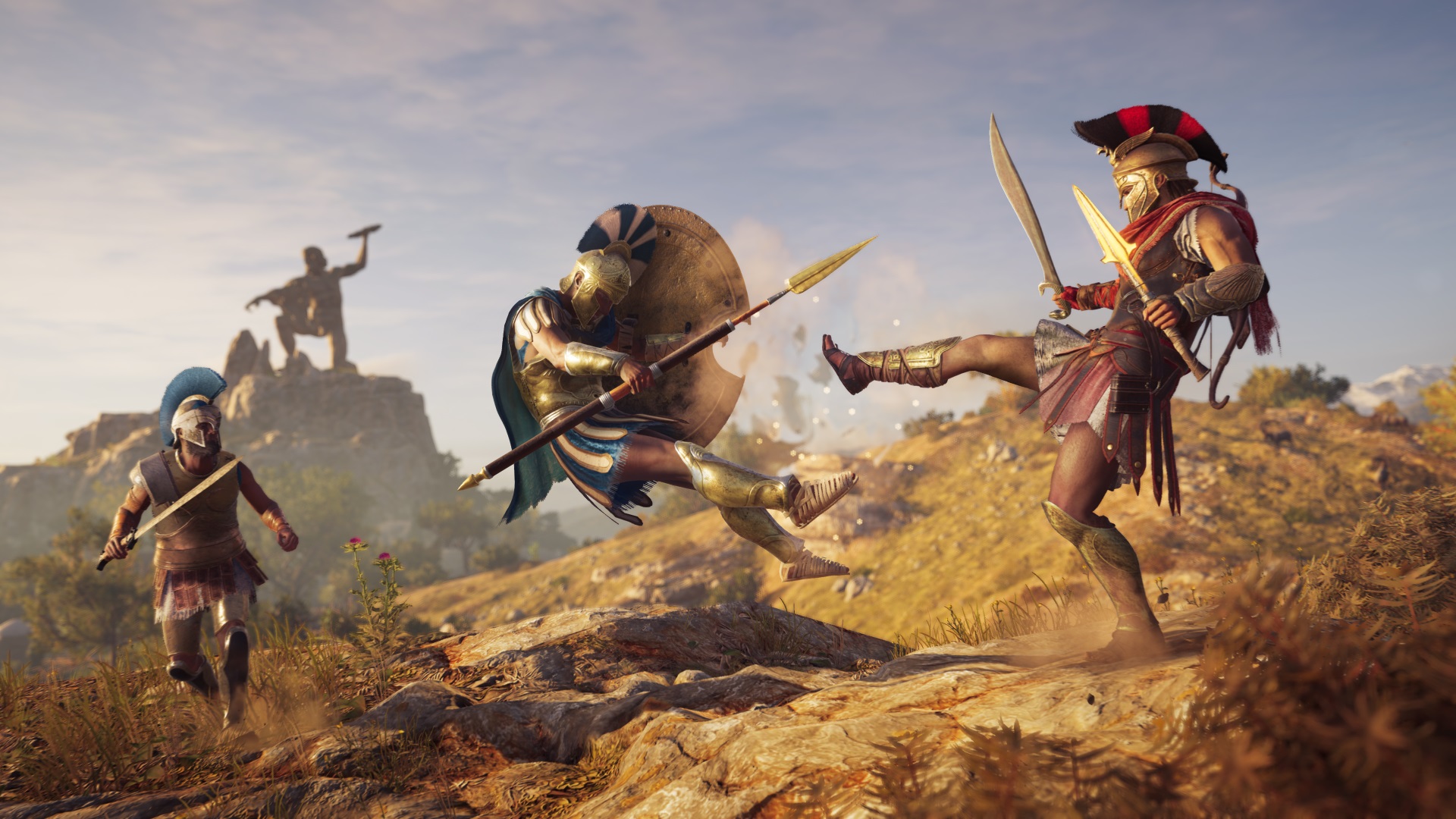
Nothing is true; everything is permitted. The Creed mantra that has guided the history-hopping franchise for the last 11 years. Well, while it kept Ezio, Bayek, Edward and co on the right track, Ubisoft itself has clearly taken the Creed to heart like a well-aimed arrow. Assassin’s Creed Odyssey isn’t just the first AC not to have any actual Assassins, there’s no sign of the iconic hidden blade, you’ve got two different characters to choose from, full-blown decision trees, and even romance options.
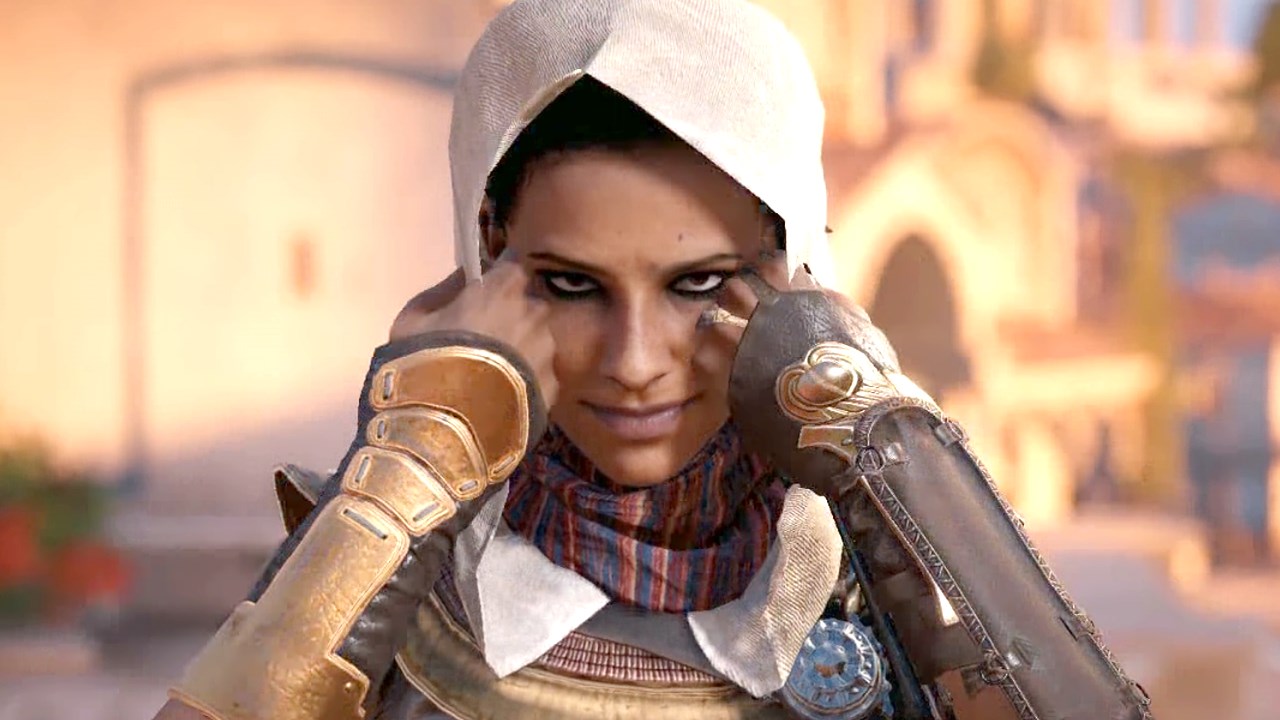
The best Assassin's Creed games, ranked
And it’s clear that the shakeup worked. Assassin’s Creed Odyssey launched in October to become one of the best received entries in the franchise so far, applauded by fans and critics alike for its successful pivot to role playing and spritely storytelling. Now that the dust has settled, here’s Official Xbox Magazine chatting with Creative Director Jonathan Dumont about all things Creed shaped, explaining Ubisoft’s thinking behind some of Odyssey’s most ambitious changes to the series’ template.
What made you decide to go with the branching choices for Odyssey?
We felt that giving our players a new way to explore history and a new way to really connect with the main character’s action was taking the next step into transforming the Assassin’s Creed franchise into a full RPG. We wanted your choices to give you not necessarily a different outcome like in the main storyline, but you always think about what you’re going to say and embrace different roles so we all come into a game having different expectations.
The game has a base personality and an expressive personality – it gives you the fantasy of being a mercenary from Sparta and then allows you to play that as you are, so if you want to be a mercenary doing things for money or if you want to be more compassionate like a hero you can do both. It allows you to really interject yourself into the story and make it your own Odyssey.
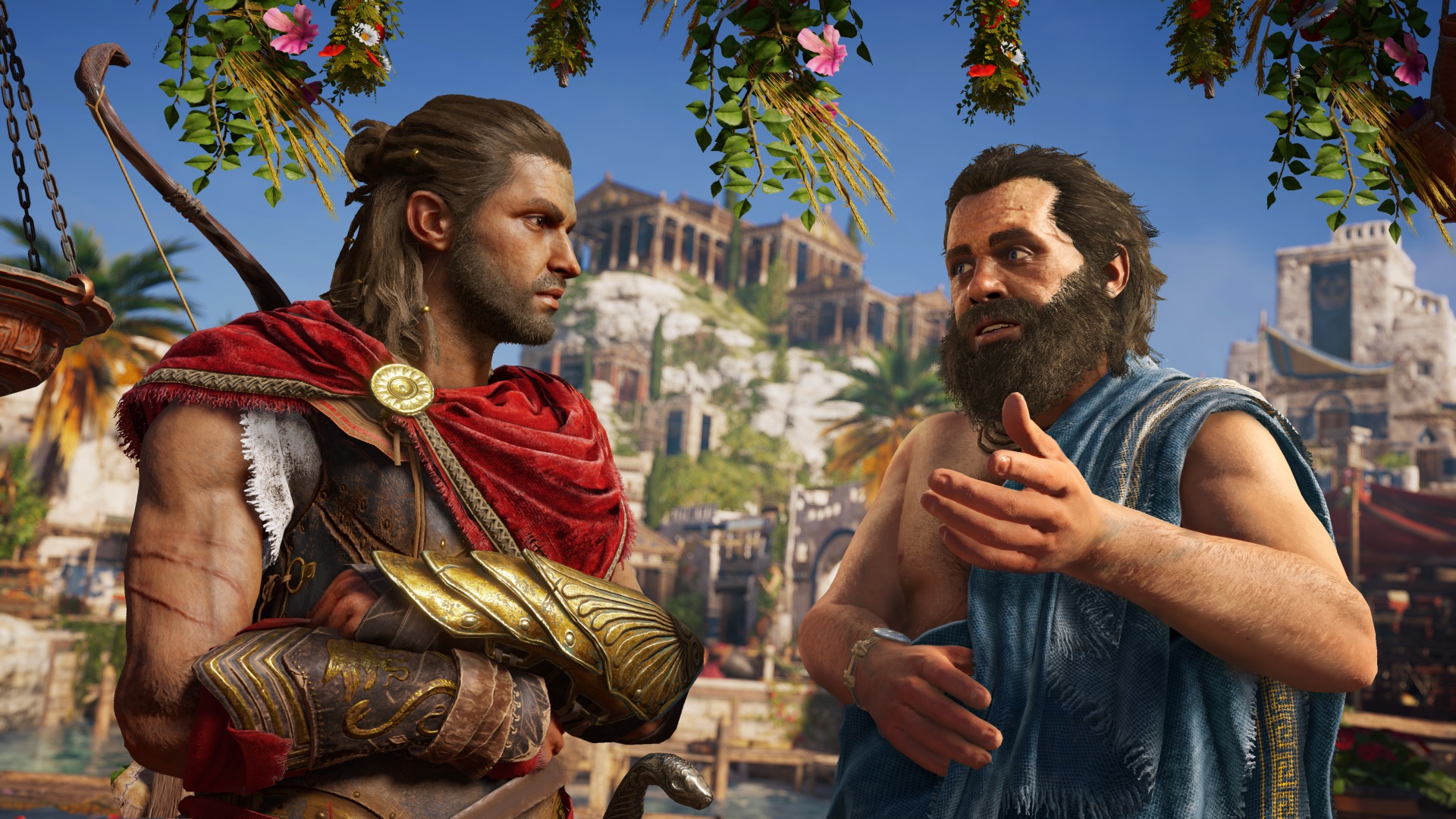
It’s quite a change, development wise. What challenges has changing that structure brought to development?
First of all we had to create a tool to allow us to do this so we created our own dialogue tool that enabled us to go from around three to four hours of pure cinematic where you don’t have an input, to having over 30 hours of dynamic dialogue with player choices. So it’s something where we can get an automatic generation based on the lines that we have and then our cinematic team can retouch everything and really create scenes that are interesting. It was also a big change from a writing point of view and a quest point of view – allowing you to have input in the story, the way we write, the staff writing, the number of writers – that all went up.
Weekly digests, tales from the communities you love, and more
We wanted to make sure we have an iteration process where it’s my voice as a player that’s heard, so early on in the process we wanted to have drafts that could be playable much earlier than we’ve done before so that we can change and make sure that all the choices are satisfying. It’s quite a bit of a change from a writing perspective and how we want to reflect what the player’s thinking is at that point, so like when you’re writing a quest you need to be able to zoom out and see, well I’ve done these things, I’ve been offered these choices before so I’m sort of building up towards something – I’m playing like a hero so I want that to be reflected in the next quest. It’s really like looking a little bit more at the player’s psychology and giving them total autonomy to what they’re doing.
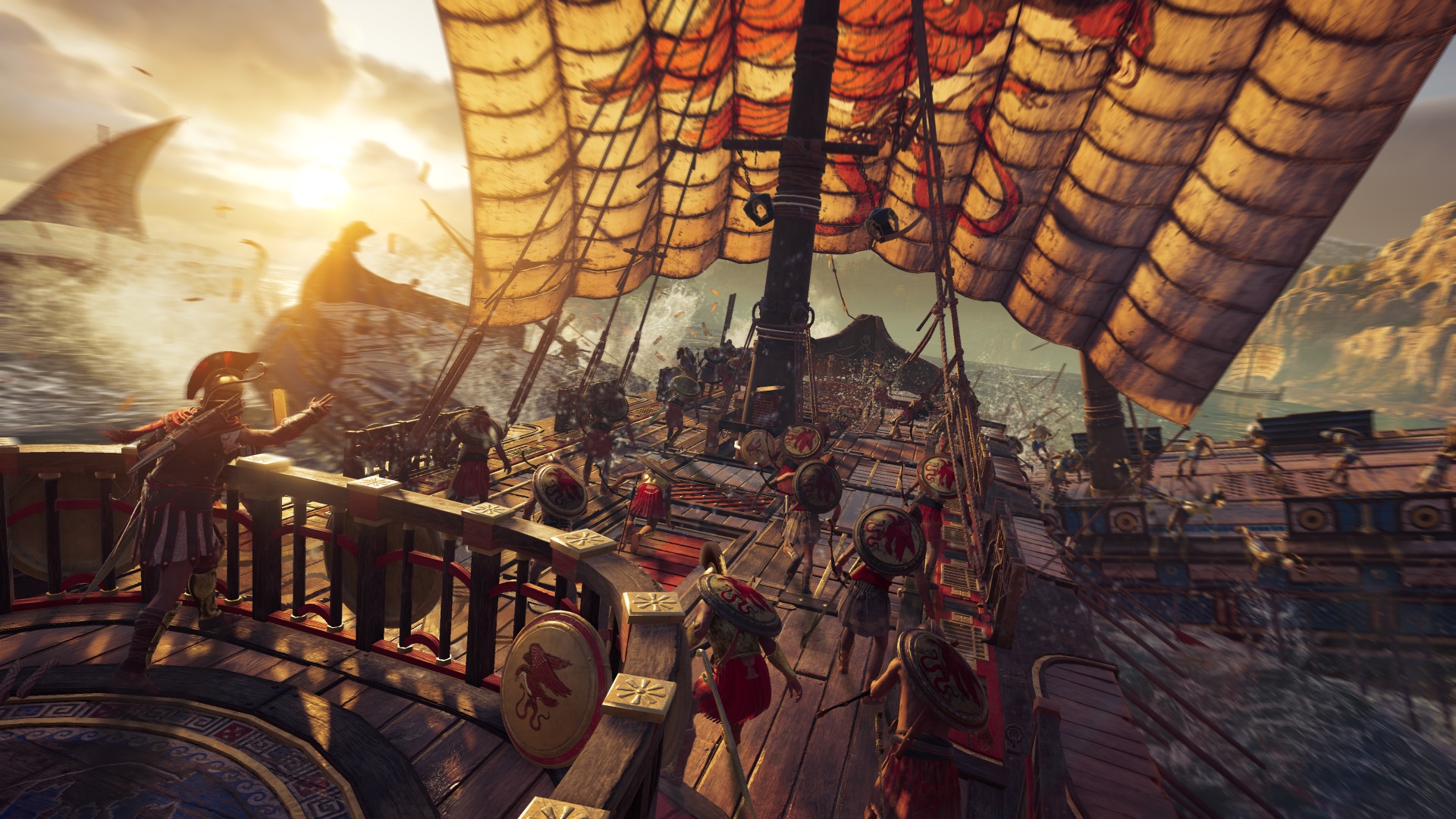
How do you balance player choices and being free to do things and still keeping the historical beats?
When we have historical events, moments in history that have been recorded, you staytrue to that so you don’t change history – you change your story through history. So, for example, we have the plague of Athens – we try to make it as realistic and historically accurate as we can, at least based on what we’ve researched, and then we give you moments with the characters that are not recorded so you can develop their personalities.
Those historical characters, based on what we’ve read, let’s say Socrates – we knew he was quite a bit of a character, always asking questions, he didn’t wear shoes, he was a little bit brash and things like that – so we played with those characteristics to be able to have a deep- diving philosophy talk with him, but when he’s in a historical moment we stay true to that historical moment.
What kind of choices do you imagine that players might make in the game? Can they be good or bad?
We try to say that there are no wrong choices. They’re all choices that you make and they’re all valid. They’ll give you what you are looking for I guess, but I think most of the time people try to be nice. I hope [laughs]. It’s okay to decide depending on the situations – we have multiple storylines, but we have a main storyline that has quite a bit of it inspired by a Greek tragedy so we try to put you into situations where choices will be tough – not necessarily what the impact will be but they’re very emotional. When they make a choice after that in the world we also give you options so you can lie, romance, or decide to attack people in the dialogue as well so those will have immediate consequences.
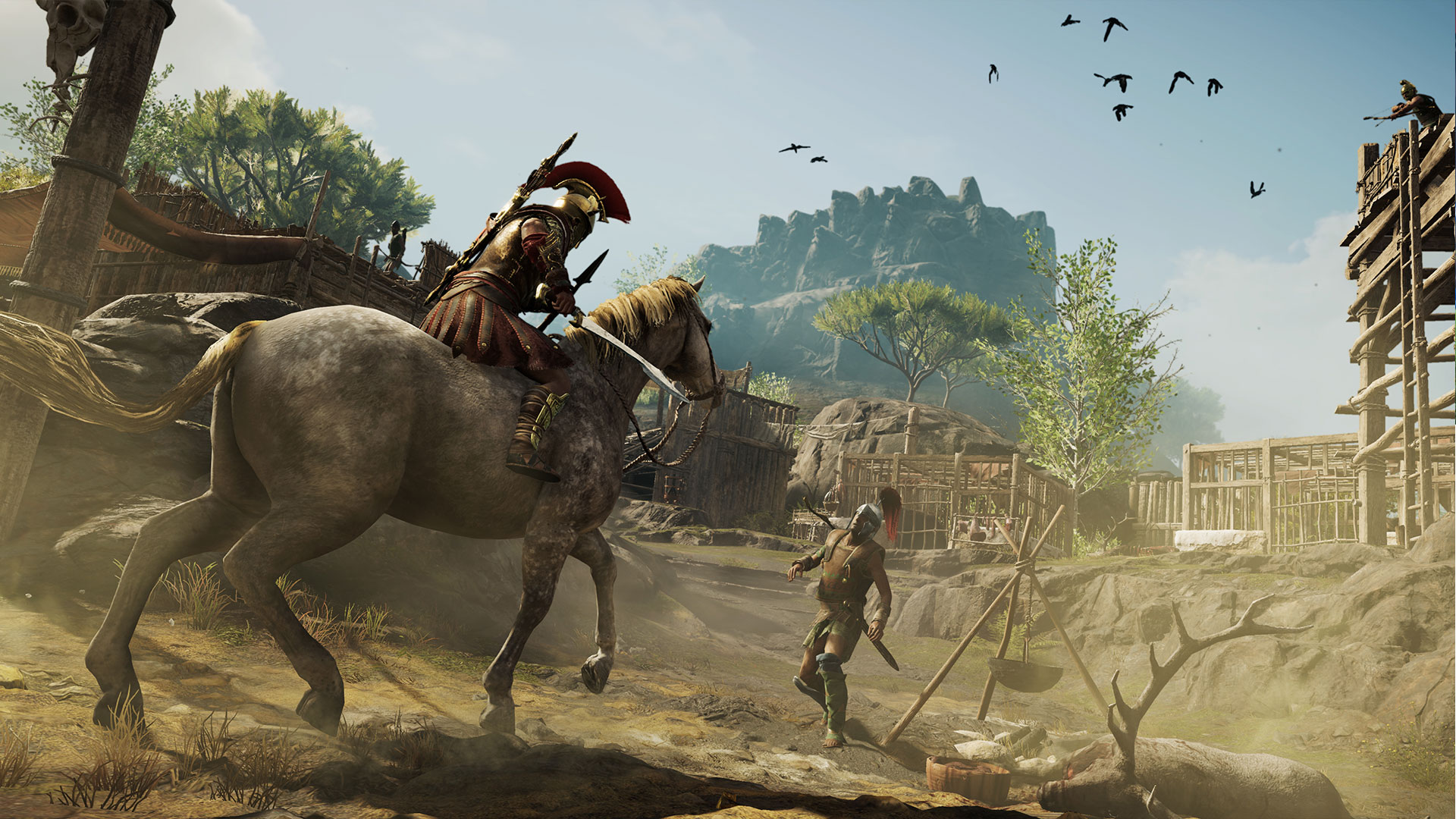
You sort of know where you want to guide things, and sometimes lying to somebody can be beneficial, sometimes it won’t be – it’s up to you to explore. We don’t try to punish players, play your story and it will all pan out in the end I’m sure [laughs]! But really each situation we try to make you make some decision, either short term, long term or medium term decisions or building up relationships with characters. It’s not about being good or bad, it’s more like, do what you feel you should do here, and you get different results from different players.
Do your choices lead you to ‘good’ and ‘evil’ paths like some traditional RPGs?
It’s more: here’s a big storyline and a storyline about making personal choices and those choices will have an impact down the road, or immediately. It’s not about influencing a faction necessarily or having an effect on the main storyline, it is much more about your personal journey. We tried to look at it as what would happen in this Greek tragedy if the main character had decided to do this instead, so we were looking at it more from a classical storytelling point of view, rather than into a system point of view, to feel more natural. Or at least we think it feels natural.
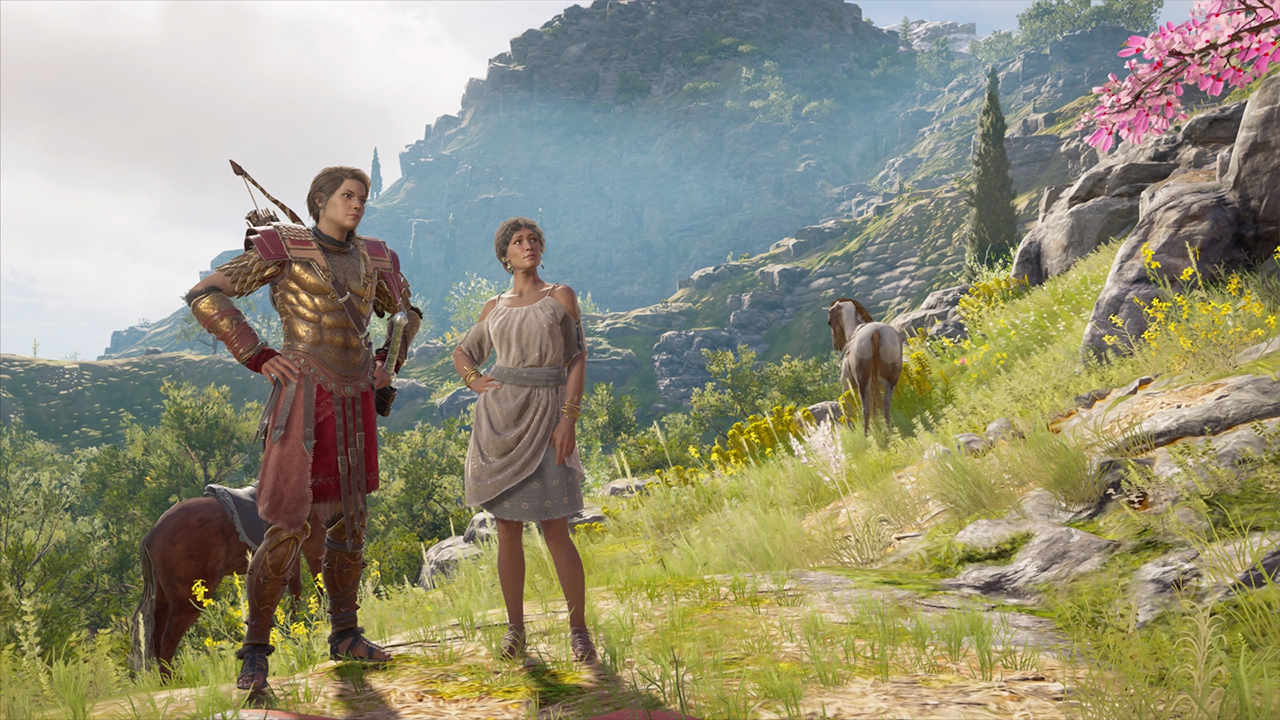
What kind of relationships can you build with characters?
"We don't try to punish players, play your story and it will all pan out!"
You’ll meet characters where you will build friendships, and also what you say to them will have an impact on how they interact with you. Maybe down the road these characters will interject themselves into other stories – those are more friendship-oriented. Then we have a handful of romantic possibilities in the game. We don’t have a full romance story that goes from the start to the end, it’s more like you go to an island and there’s a romantic situation possible there, and then if you fail it or you’re not interested in this one or whatever you can always meet someone else. But we try to keep it as a fun thing where you can actually roleplay it and have some fun.
Do you think the rest of the series will follow suit or is it just Odyssey that’s going with this style?
We’ll start with Odyssey and then we’ll see later! I think it’s the next step in that progression from Assassin’s Creed Origins. Origins did super-well at putting in progression and levelling up, gear, making it a large world with quests rather than big missions, so it’s a continuation of that. So we’ll see! I’m interested in that, but we’ll see!
This feature originally appeared in Official Xbox Magazine. Pick up a copy now or subscribe so you never miss an issue.
Louise Blain is a journalist and broadcaster specialising in gaming, technology, and entertainment. She is the presenter of BBC Radio 3’s monthly Sound of Gaming show and has a weekly consumer tech slot on BBC Radio Scotland. She can also be found on BBC Radio 4, BBC Five Live, Netflix UK's YouTube Channel, and on The Evolution of Horror podcast. As well as her work on GamesRadar, Louise writes for NME, T3, and TechRadar. When she’s not working, you can probably find her watching horror movies or playing an Assassin’s Creed game and getting distracted by Photo Mode.



